Mon 20 Dec 2010
Holiday Round-Up
Posted by Ethan under Film Review, NYC Film Critic
1 Comment
With the holiday hiatus fast approaching, here’s a big batch of reviews of some of December’s most interesting offerings (leading off with Sofia Coppola’s latest film Somewhere, starring Stephen Dorff), some of which will be rolling out in the next two weeks, while others have already opened. Look for two more posts to come before the New Year, a Film Journal published reaction to Jack Black’s Gulliver’s Travels and, last but not least, my 2011 Year in Review.
——————————————————————————————————————————————————————————-
Somewhere
Written and Directed by Sofia Coppola
Starring Stephen Dorff and Elle Fanning
***
Sofia Coppola’s fourth feature Somewhere has one of the most disappointing endings to a potentially great movie I’ve seen in quite some time. For its first 80 or so minutes, Somewhere functions as a remarkably intimate and live-in evocation of Hollywood privilege, following a few days in the life of major movie star Johnny Marco (played by Stephen Dorff, who briefly attained Next Big Thing status himself back in the ‘90s). Currently in between projects, Marco has taken up semi-permanent residence at L.A.’s famed Chateau Marmont hotel, which has been a home away from home for any number of badly behaving celebrities over the years, from John Belushi (who fatally overdosed during his stay) to Lindsay Lohan.
Fortunately for him, Marco doesn’t appear to suffer from any similar substance abuse problems. In fact, he’s really not much of a wild man at all—his idea of a fun night is ordering up a pair of exotic dancers to put on a private show for him while he nods off on the bed. No, Johnny’s primary character flaw is the lethargy brought on by his movie star existence, where everything is done for him and his only real “job†(when he’s not on set at least) is to show up where and when he’s needed to shake some hands, do a few interviews and take some photos. The early brilliance of Somewhere lies in the way Coppola—once again employing her effectively understated, observational style that emphasizes mood and tone over plot—steadily reveals how Marco is, in fact, a prisoner of his lavish lifestyle.
In interviews, Coppola has described Somewhere as the anti-Entourage, the popular HBO series that revolves around the exploits of a young movie star and his posse. Where that show unabashedly celebrates Hollywood excess, Somewhere takes a more checkered view. Certainly, Coppola knows better than to try and convince the audience that living in the lap of luxury is a hardship; viewers are invited to marvel at (and envy) the deluxe accommodations and other perks that Marco enjoys. What’s even more striking though, is his odd passivity to them—he’s lived this way for so long, the trappings of fame have become banal.
Midway through the film, Johnny finally gets a taste of real life when his pre-teen daughter Cleo (Elle Fanning) comes to live with him while her mother (who is either Johnny’s former wife or an ex-girlfriend—it’s never specified) leaves town for some “me time.â€Â Having Cleo around doesn’t alter his routine significantly—he still jets off to exotic locations and sleeps with beautiful women, albeit after his daughter has gone to bed—but her presence does require him to care about someone else’s needs beyond his own. And that small injection of responsibility into his otherwise accountability-free existence eventually pushes the oblivious movie star to a climactic realization that may set his life on a new path.
It’s unfortunately at this point that Coppola lost me, as she presents Johnny reacting to this breakthrough with a teary confession followed by a symbolically-loaded action that doesn’t completely square with what we’ve seen of him up to that point. It’s a gesture that feels more like an act of wish fulfillment on the director’s part, borne out of an understandable desire to see this character arrive at a happy ending. (Then again, perhaps we’re so accustomed to stories of self-destructive stars, the idea of someone like Johnny Marco taking the necessary steps to make a positive change in his life simply seems unrealistic.) Still, while the final scenes strike a false note, so much of Somewhere rings true, from the quiet, tender moments that Marco shares with his daughter to Coppola’s informed and witty peeks behind the Hollywood curtain. (There’s an extended sequence at a press junket, for example, that captures those carefully stage-managed events in all their awful glory.) Even in its imperfections, Somewhere reflects its maker’s distinct artistic sensibility as well as her uncommon empathy for her creations.
Somewhere opens in limited release on December 24.
——————————————————————————————————————————————————————————-
Also Coming Soon:
Secret Sunshine
Written and Directed by Lee Chang-dong
Starring Jeon Do-yeon, Song Kang-ho and Jo Yeong-jin
***1/2
Arriving on U.S. screens three years after its premiere at the 2007 Cannes Film Festival—where its star Jeon De-yeon deservedly picked up a Best Actress prize—this sprawling South Korean film begins as a quiet domestic drama and then quite suddenly morphs into an almost operatic tragedy. De-yeon plays a widow who moves with her young son to her deceased husband’s hometown and opens a piano studio. After passing through the typical fish-out-of-water adjustment period, they’re at last starting to feel settled in their new surroundings when the boy is kidnapped and killed by someone they know. Distraught, his mother temporarily finds solace by joining the city’s evangelical Christian community, only to realize that religion alone can’t absolve her of her anger and grief. Unfolding over a leisurely paced (but never dull) two-and-a-half hours, Secret Sunshine—which writer/director Lee Chang-dong adapted from a popular South Korean novel—is rich in drama and ideas. The only section of the film that feels somewhat padded is the one depicting De-yeon’s troubled state of mind after she loses her faith; it’s an essential part of the story, but Chang-dong devotes perhaps one scene too many to showcasing the grieving woman’s increasingly erratic behavior. It’s a shame that it took Secret Sunshine this long to reach our shores, but the film is decidedly worth the wait.
Secret Sunshine opens at New York’s IFC Center on December 22
Hadewijch
Written and Directed by Bruno Dumont
Starring Julie Sokolowski, Yassine Salime and Karl Sarafidis
***
IFC Films has cheekily picked Christmas weekend as the release date for the latest film from French director Bruno Dumont, which tells the story of a fiercely devout nun-in-training (Julie Sokolowski, in a performance of admirable focus and intensity) whose single-minded love of God leads her to join a group of Islamic radicals and assist them in carrying out a suicide mission. Much like Chris Morris’ recent jihadist comedy Four Lions–although Dumont plays his premise with stone-faced seriousness–Hadewijch is about the blindness brought on by religious fanaticism. This young woman is so consumed by her faith, so eager to prove herself worthy of God’s love, that she achieves a state of mind where the murder of other people in pursuit of that goal seems entirely rational. Dumont’s direction is too on-the-nose at times (at one point when discussing martyrdom, Sokolowski is seen wearing a hood that brings to deliberately echos Joan of Arc’s battle gear) but he deserves credit for presenting this challenging material in a thoughtful, understated way that doesn’t hand-hold the audience. The final scenes in particular should inspire some heated debate as viewers try to determine whether what we’re seeing is real or part of some kind of spiritual hallucination. It’s a provocative ending to a provocative film.
Hadewijch opens at New York’s IFC Center on December 24
Blue Valentine
Directed by Derek Cianfrance
Written by Derek Cianfrance, Joey Curtis and Cami Delavigne
Starring Ryan Gosling and Michelle Williams
***
Michelle Williams solidifies her position as one of the finest actresses working today in this smartly-conceived and, at times, quite moving depiction of the beginning and end of one couple’s marriage. Shifting back and forth in time across a five-year span, co-writer/director Derek Cianfrance presents the sweet courtship between ambitious small-town girl Cindy (Williams) and charming big-city boy Dean (Ryan Gosling) alongside the wrenching final days of their doomed relationship. Cindy’s transformation from hopeful newlywed to disillusioned, disappointed spouse is exquisitely played by Williams, whose low-key, yet still impassioned performance is a welcome contrast to the more histrionic turns by Natalie Portman and Lesley Manville that are catching the brunt of attention this awards season. (And I say that as someone that admires both Portman and Manville tremendously in their respective films by the way—Williams has a far less showy role and still manages to hit notes that the other two actresses don’t reach.) For his part, Gosling is more convincing as the fresh-faced suitor than the pushy and somewhat pathetic married man—he’s good, but not at the level of his co-star. The film is also marred somewhat by a subplot involving one of Cindy’s former flames, which feels ripped out of a soap opera. As a showcase for Williams though, Blue Valentine delivers and then some.
Blue Valentine opens in limited release on December 31.
——————————————————————————————————————————————————————————-
Now Playing:
The Company Men
Written and Directed by John Wells
Starring Ben Affleck, Chris Cooper and Tommy Lee Jones
**1/2
Picking up where Up in the Air left off, the feature film debut of longtime television writer/executive producer John Wells (whose credits include ER and The West Wing) tracks what happens to a group of white collar workers after they’re given a day to clean out their desks and find gainful employment elsewhere. The high-profile cast includes Ben Affleck as a family man living somewhat beyond his means, Chris Cooper as the veteran who can’t imagine life without his 9-5 routine and Tommy Lee Jones as the second-in-command that takes each firing personally. (Other familiar faces that pass through the frame include Kevin Costner, Craig T. Nelson, Maria Bello and Rosemarie DeWitt, although, as the title suggests, these two actresses are rarely the focal point of any given scene.) Wells’ years of experience running large ensemble shows like The West Wing comes in handy as he juggles the multiple storylines involving the respective company men. There’s never the sense that any of the characters have been given the short shrift—Wells awards each of them several meaty individual scenes to play and they rise to the occasion. Like Up in the Air though, The Company Men ultimately feels too calculated in its attempts to present a snapshot of a country and workforce still trapped in the grip of a Great Recession. It strains to reflect the rhythms of real life but too often falls back on the manufactured drama of television.
Night Catches Us
Written and Directed by Tanya Hamilton
Starring Kerry Washington and Anthony Mackie
***
First-time feature filmmaker Tanya Hamiltion delivers a solidly crafted, if somewhat antiseptic period piece set in Philadelphia in the mid-‘70s. Returning home after several years in forced exile, one-time Black Panther member Marcus (Anthony Mackie) finds that he’s become a neighborhood pariah for allegedly informing on a fellow Panther. The one person that’s still willing to speak to him is Patricia (Kerry Washington), his childhood friend and the wife of the man that was targeted and eventually killed by the police. As the two grow closer, past secrets are revealed and someone close to them becomes the victim of another tragic murder. Hamilton employs a number of familiar conventions and contrivances in telling this story, but the performances and sense of place are generally strong enough to distract our attention from the narrative artifice.
Rabbit Hole
Directed by John Cameron Mitchell
Written by David Lindsay-Abaire
Starring Nicole Kidman, Aaron Eckhart and Dianne Wiest
**1/2
In its best moments, the film adaptation of David Lindsay-Abaire’s Pulitzer Prize-winning play Rabbit Hole—about a husband and wife (Nicole Kidman and Aaron Eckhart) attempting to move beyond the death of their 4-year-old son—believably captures the intimate shorthand of a longtime married couple. Largely eschewing exposition, Lindsey-Abaire and director John Cameron Mitchell set viewers down in the characters’ stately homestead several months after the tragedy as they grapple with their overwhelming sadness and uncertainty over what to do next. If Rabbit Hole remained with them in that silent, haunted house for the duration of its slender running time, it likely would have been a rewarding, if draining emotional experience. But because films are expected to “open up†theatrical plays, Mitchell leaves his most interesting setting too often. (It doesn’t help that, with one or two exceptions, the supporting characters that drift through the scenes set outside of the house are largely an uninteresting bunch.) In attempting to expand the film’s canvas, Mitchell ends up muting its dramatic effectiveness.
The Tempest
Written and Directed by Julie Taymor
Starring Helen Mirren, Djimon Hounsou and Ben Whishaw
**
You’d never know this from watching Julie Taymor’s film version of William Shakespeare’s final play, but The Tempest is actually a light comic fantasy, at least until it arrives at its beautifully melancholic conclusion. As a director, Taymor has a number of formidable skills, but a light touch and a flair for comedy aren’t among them. As a result, her take on The Tempest lacks the nuance and subtle tonal shifts of the text, drowning out Shakespeare’s words with CGI-enhanced visual effects and  flat presentations of the play’s central relationships. The cast is a motley crew that throws such theater pros as Helen Mirren (regal as the banished wizard Prospera) and Alfred Molina into scenes with actors like Russell Brand and Djimon Hounsou, who have considerably less experience with Shakespeare…and it shows. The gender switch from Prospero to Prospera does add an interesting dimension to certain scenes, particularly the moments between Mirren and Ben Whishaw as the island sprite Ariel, depicted here as a kind of surrogate child to Prospera. But Taymor’s heavy hand behind the camera suffocates the sense of wonder and whimsy that’s so essential to The Tempest.
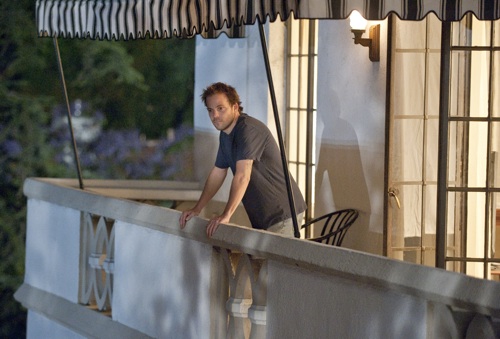
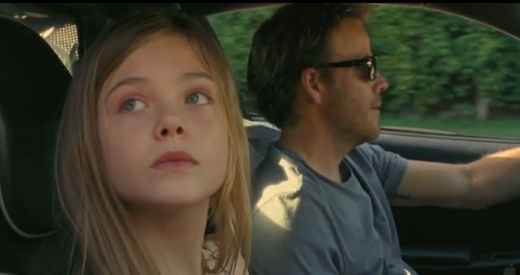
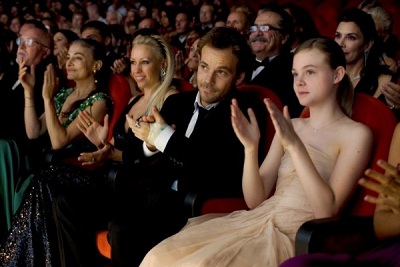

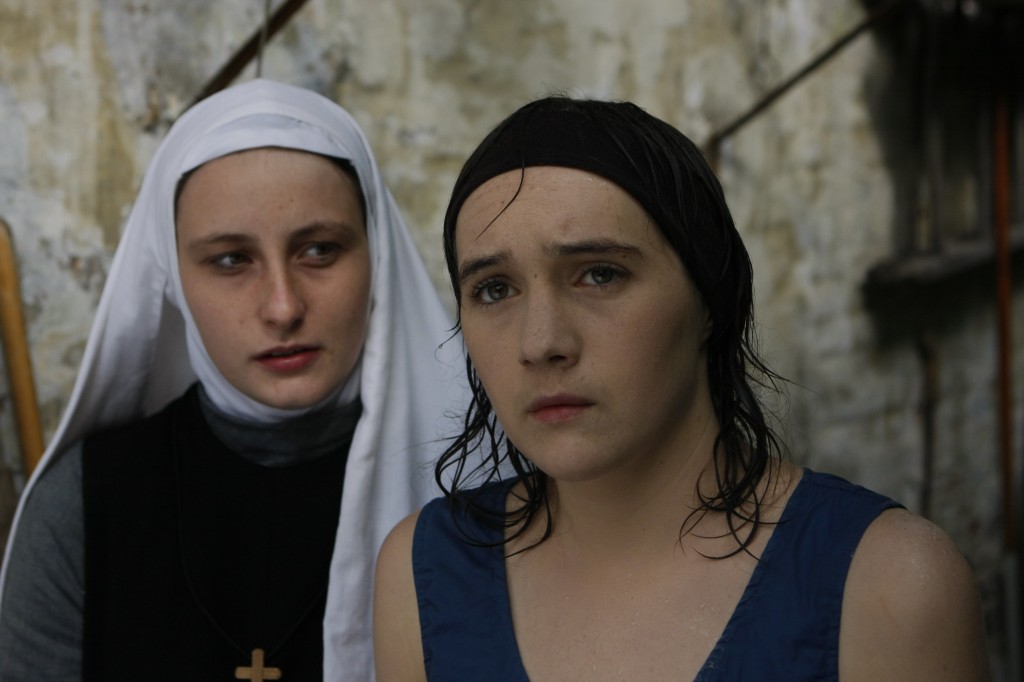
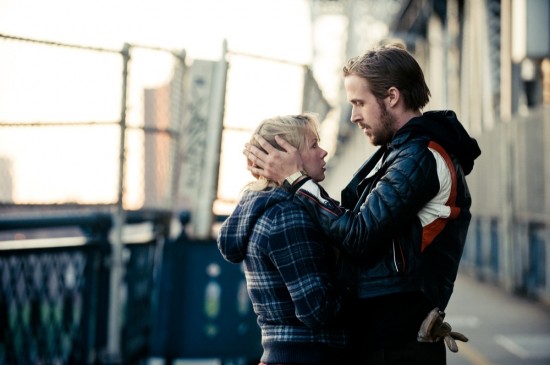

One Response to “ Holiday Round-Up ”
Trackbacks & Pingbacks:
[…] Roll Blue Valentine Disco and Atomic War Dogtooth Everyone Else The Fighter 45365 Ghost Town Greenberg How to Train […]